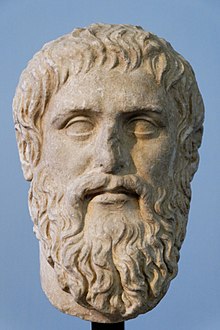
Plato Page 2
We found 21 free papers on Plato
Essay Examples
Overview
Plato and Nietzsche
Concept
Ethics
Friedrich Nietzsche
Metaphysics
Morality
Plato
Both Plato and Friedrich Nietzsche are seminal figures in the annals of Western philosophy. While Plato created the foundation for much of what was to follow, Nietzsche helped shape modern philosophy. The lofty ideals of each philosopher, as well as their oftentimes ruthless way of presenting them have made each man deep admiration, but also…
Plato’s “An Argument for Dualism from ‘Alcibiades I’” Short Summary
Critical Thinking Skills
Existence
Metaphysical theories
Metaphysics
Plato
Soul
In Plato’s “An Argument for Dualism from ‘Alcibiades I,’” he discusses the idea that man is one of three things: soul, body, or both together forming a whole. In his dialogue between Socrates and Alcibiades, Plato argues that neither the body, nor the union of soul and body is man. This leads him to claim…
Plato’s Ideology- “Allegory of a Cave”
Education
Plato
Soul
“The Allegory of the Cave” demonstrates many of Plato’s beliefs, impacting the way he views education. …the power and capacity of learning exists in the soul already; and that just as the eye was unable to turn from darkness to light without the whole body, so too the instrument of knowledge can only by the…
A judgment and a potential of ruling
Ethics
Idea
Plato
He also developed 4 theories proving and supporting his theory: first of all, he says that ruling is a skilled profession, such as a doctor, a lawyer, so it requires a specific training. Secondly, he has a specific idea of what the training should be: first of all, it will consist of selecting the people…
Plato theory of forms
Idea
Plato
Reality
Plato proposed the concept of two worlds: the material world and the world of ideas or Forms. He believed that the world of ideas or Forms represents true reality, while the material world merely mirrors this reality. Plato argued that our understanding of the Forms is innate and comes before our interactions with physical objects….
Critical Analysis on Plato’s Phaedo
Knowledge
Plato
Socrates
Self-knowledge is the discovery of one’s world and oneself in relation to all things. In Phaedo by Plato, Socrates explores the meaning and origin of self-knowledge. While in jail awaiting his execution, he cautions his comrades about the dangers of scrutinizing beings excessively, likening it to staring at the sun during an eclipse. According to…
Plato’s Arguments for the Importance of Education
Education
Importance of Education
Plato
What is the purpose of education? A well known philosopher named Plato actually believed the true purpose and goal of education was to develop a man’s character to be rational and moral. His teacher, Socrates, was very known for the saying “the unexamined life is not worth living” (Cooper and Hutchinson, 33). This quote is…
Explain Plato’s Analogy of the Cave
Allegory Of The Cave
Epistemology
Ethics
Metaphysical theories
Metaphysics
Plato
Plato, a Greek philosopher, authored a book titled the ‘Republic’ during the period of 428-347 BCE. Within this work, he elucidated his theory of the World of Ideas and the Natural World through an analogy known as the cave. This analogy serves as an explanation of ‘the truth’, asserting that to uncover it, one must…
Explain Plato’s Form of the Good
Knowledge
Logic
Plato
Explain Plato’s Form of the Good Plato held the belief that the world we perceive is not real and that the ordinary things we see are mere imperfect copies of the true essence behind them. He posited that every material object and abstract idea, like beauty, has an ideal version that exists beyond the earthly…
Pros and Cons of Judicial Review
Constitution
Justice
Plato
Judicial Review is a power bestowed upon Supreme Court justices, wherein they assess whether a law adheres to the Constitution. Chief Justice John Marshall, in the 1803 Marbury Vs. Madison case, established this authority which solidified the Supreme Court as the ultimate interpreter of Constitutional law. Presently, this stands as one of the main responsibilities…
| born | Classical Athens |
|---|---|
| died | Athens, Greece |
| description | Plato was an Athenian philosopher during the Classical period in Ancient Greece, founder of the Platonist school of thought and the Academy, the first institution of higher learning in the Western world. |
| books | A Very Short Introduction, Timaeus, Ion, Crito, Timaeus et Critias, Republic, Phaedo |
| quotations | “Be kind, for everyone you meet is fighting a harder battle.” “Every heart sings a song, incomplete, until another heart whispers back. “We can easily forgive a child who is afraid of the dark; the real tragedy of life is when men are afraid of the light.” “Only the dead have seen the end of war.”,One of the penalties for refusing to participate in politics is that you end up being governed by your inferiors. Opinion is the medium between knowledge and ignorance. Good people do not need laws to tell them to act responsibly, while bad people will find a way around the laws. Music is a moral law. |
| information | Influenced by: Socrates, Pythagoras, Heraclitus, Parmenides, Homer, Protagoras, Gorgias, Hesiod Parents: Ariston of Athens, Perictione Siblings: Glaucon, Adeimantus of Collytus, Potone, Antiphon |

